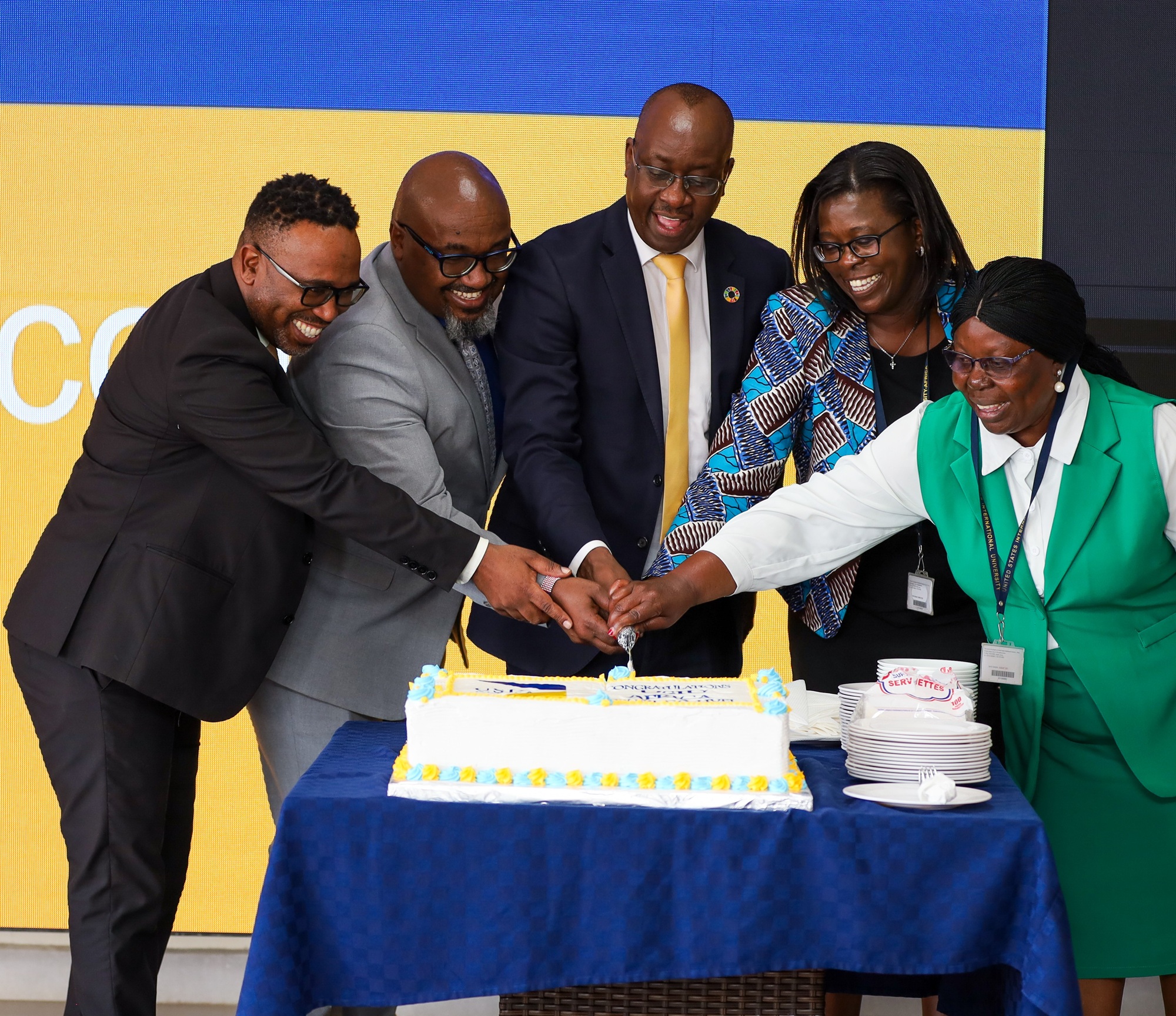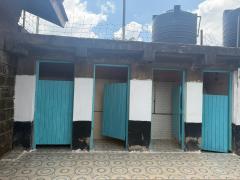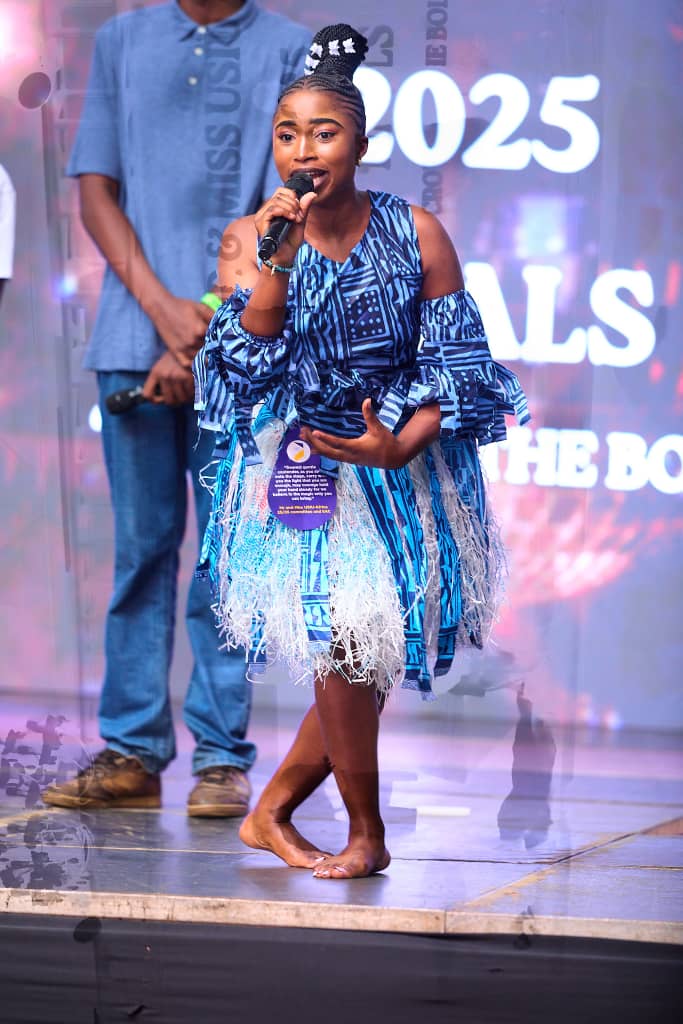FAQs - Mastercard Foundation Scholars Program
1. Who qualifies to apply for the scholarship?
The following are the minimum academic qualifications for a person to apply for the scholarship:
| COUNTRY | EXAM RESULTS |
| Minimum university entry grade as set by the Kenya Commission for University Education (CUE). Students who have done other curricula other than the Kenya Certificate of Secondary Education (KCSE) have their grades equated by the Kenya National Qualifications Authority (KNQA) and must equate to at least a C+. For some programs, e.g. the programs in the school of health sciences, the minimum entry grade is higher and cluster subjects are also checked. | |
| Chad | French system, at least a score of 10 obtained in all the subjects taken at Secondary school certificate |
| Democratic Republic of Congo | High School diploma, with a cumulative average of 60% or better. |
| The Gambia | West Africa Examination Council (WAEC) - 5 passes of grade B4 or better |
| Ghana | West Africa Examination Council (WAEC) - 5 passes of grade C5 or better |
| Kenya | Kenya Certificate of Secondary Education (KCSE) - Mean grade of C+ or better (Cluster subjects will be required for Science majors) |
| Liberia | West African Senior School Certificate Examination (WASSSCE) - 5 passes of between 1-7 grade |
| Malawi | Malawi School Certificate of Education (MSCE) - Grade 6 or better in at least 5 subjects |
| Namibia | Namibia Senior Secondary Certificate (NSSC) Higher Level examination Grade 3 and above |
| Nigeria | West Africa Examination Council (WAEC) - 5 passes of grade C5 or better |
| Sierra Leone | International Senior Secondary School Certificate Examination (SSSCE) of B4 grade or better |
| Tanzania | Advanced level, 3 passes of C and above |
| Uganda | 2 Principal passes and One subsidiary pass |
| Zambia | Examination Council of Zambia ECZ or GCE equated to ECZ- 5 passes grade B or better |
| Zimbabwe | Senior High School (Advanced level) passes of C or better |
- The applicant must demonstrate commitment to giving back to the community through previous/past community service engagements. The student must also demonstrate willingness to go back to their community after completing the program they get admitted to.
- The applicant must demonstrate leadership qualities through previous/past leadership positions held at any level.
- The applicant must be a maximum of 29 years of age by the time of the application.
- The student must be from any of the categories stated; a young man, a young woman, a young refugee, a displaced youth, a youth living with disability.
- The student must apply for any of the 13 programs covered by the scholarship and meet the minimum cluster points for the program applied for.
- The applicant must demonstrate that they are from a disadvantaged background and need support to undertake an undergraduate program.
- The applicant must not have undertaken an undergraduate course in another institution of higher learning. The scholarship is for first-time undergraduate seeking applicants.
2. When can I make an application for the scholarship?
There are 2 intakes per year for the scholarship; Summer (May) and Fall (September). Calls for applications are sent out around October/November for Summer intake and February/March for Fall intake. The calls for applications are posted on the USIU-Africa website and all USIU-Africa social media pages.
3. Where do I get the application forms for the scholarship?
The scholarship forms are posted on the website under the call for applications for the specific cycle. The applicant just needs to download the form, print it, fill all the required areas, scan and send to the email provided, attaching all the required documents. Printed application forms are also available at the USIU-Africa main campus, at the admissions office.
4. Where do I send my filled application forms?
Submit complete application together with other supporting documents required by email ensuring that the scanned copy of the scholarship application form and all the required documents are scanned in PDF format. Clearly name while sending with your name and nationality as the email subject to: mcfsp-applications@usiu.ac.ke or drop your application at the Scholars Program Office, located in the School of Graduate Studies, Research and Extension building at USIU-Africa, or post your application to:
Program Director,
Mastercard Foundation Scholars Program,
United States International University - Africa,
P. O. Box 14634 - 00800, Nairobi - Kenya
5. How do I know I have qualified for the scholarship?
Due to the high number of applications we receive every cycle, we are not able to give individualized feedback to every applicant. The call for applications always includes the timelines for the scholarship application process. Those who don’t receive any communication by the set dates should consider their applications unsuccessful.
Those who get shortlisted are called and invited for either face to face interviews or virtual interviews. Those who succeed in the interviews are called and informed and are also sent their scholarship award letters. Those who attend the interviews but are unsuccessful are also emailed informing them that they didn’t pass the interviews.
6. Can people who didn’t do the KCSE but other curricula apply for the scholarship?
Yes. Those who undertook other curricula of education can apply provided they meet the other minimum eligibility criteria. They will undergo the vetting process just like everyone else.
7. What if I only get to know about the scholarship after the set deadline has passed?
The set timelines for the scholarship are strictly adhered to including the application deadlines. If a person misses the deadline, they have to look out for the next cycle to make an application.
8. Can I apply for the scholarship if I am from another country other than Kenya?
Yes. The scholarship is open to applicants from across the African continent provided they meet the minimum eligibility criteria.
9. Can I apply for the scholarship if I am from a country that is not in Africa?
No. The scholarship is only open to African nationalities. Africans who have studied in countries other than their countries of origin qualify to apply even if the countries they studied in are out of Africa. They just need to meet the minimum eligibility criteria.
10. What makes an applicant fail to be shortlisted to attend the scholarship interviews?
The recruitment team thoroughly goes through all the submitted applications. Failure to meet the minimum stated eligibility criteria leads to automatic disqualification. The following are some of the other reasons that make an applicant not get shortlisted:
- Submitting an incompletely filled application form.
- Failure to attach the relevant required documents.
- Submitting the application past the set deadline.
- Sending the application to an email address other than the one advised on the call for applications.
- Making the application on an invalid application form. An invalid application form is a form that is different from the application form sent out in the call for applications for the specific cycle applied for.
- Sending the application documents in a format that is not easily accessible by the recruitment team, e.g. formats requiring a password to access. We recommend that applications are scanned in pdf format and sent as an attachment.
11. Is the scholarship for women only?
No. The scholarship is also open to men. Each cycle of calls for applications specifies the target group it is focusing on.
12. Can I get the scholarship and study in a university of my choice?
No. The Mastercard Foundation Scholars Program at USIU-Africa is only valid for at USIU-Africa. However, Mastercard Foundation has partnered with other universities across the globe for the Scholars program. Each partner university has their own independent recruitment process. The partner universities can be found on the Mastercard Foundation website.
13. If my interest is in engineering, can I apply for the scholarship?
The scholarship is only valid for the 13 programs sponsored at USIU-Africa. If an applicant applies for a program that is not offered under the scholarship, their application is disqualified.
14. Does the scholarship cover post-graduate studies (Masters programs)?
No. The scholarship is only valid for undergraduate programs.
15. Can I transfer credits into the scholarship if I am already a scholar in another university or in USIU-Africa?
No. The scholarship is only open to first-time undergraduate seeking applicants.
16. Can I make an application if I dropped out of another university?
The recruitment panel will review the applications case by case to determine if the reason given for dropping out fits our eligibility criteria.
17. Can I make an application if I have a diploma and not an undergraduate degree?
No. The scholarship is only open to applicants who are disadvantaged such that they have previously not had an opportunity to join a tertiary institution.
18. Can I make an application if I have not finished high school but will be finishing soon?
No. The final certificate/result slip for final year secondary school must be attached to the application documents for consideration. An applicant has to wait till they get that final certificate to make an application in the next cycle.
19. Who caters for the application and recruitment process cost including transport to the interviews?
The applicant fully caters for the cost of the application and recruitment related costs including transport to the interviews and printing costs.
20. If I make an application and I am unsuccessful, can I make an application in the next cycle of scholarship call for applications?
It depends on the reason for being unsuccessful in the first instance. If the reason is that the applicant had not met the minimum university entry qualifications, then they don’t need to make another application as the status quo remains. For other reasons such as not meeting the deadline, failure to attach the required documents, etc, one can rectify their mistake and reapply.
21. What does the scholarship cover?
- Tuition and functional fees;
- Laptops, books, and other learning materials;
- Reasonable accommodation and meals;
- Medical insurance;
- Stipend;
- Transport to and from home;
- Access to leadership training;
- Access to entrepreneurial training;
- Psycho-social support, career counseling, and mentorship.
- Disability needs are reasonably catered for.
22. How much stipend is given to the beneficiaries?
The stipend given to the beneficiaries is reasonable for their comfortable stay in campus during their studies.






